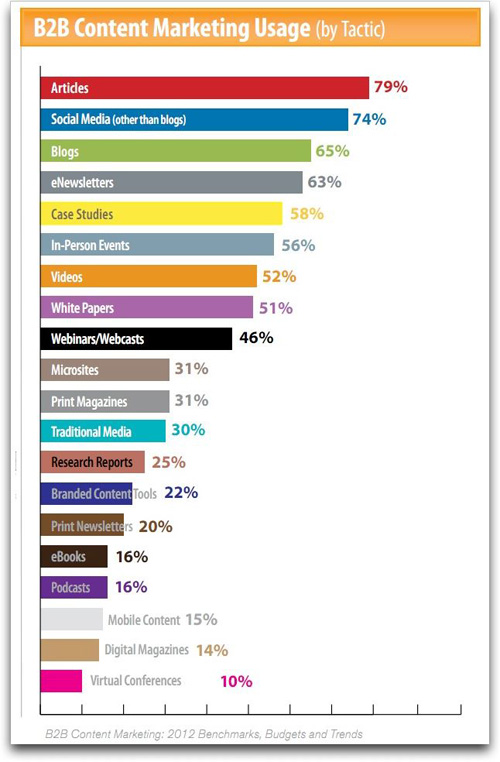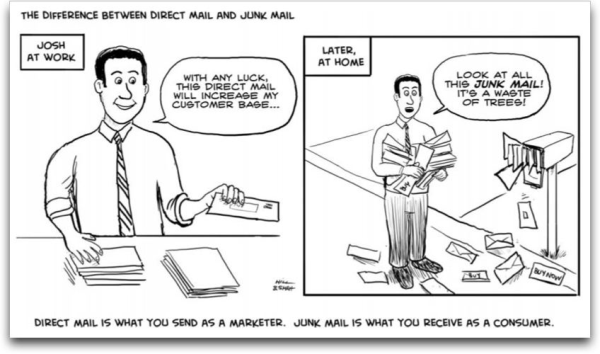From interruption marketing to attraction marketing
We’ve all paved the way for content marketing as we turned away from commercials. We just grew tired of advertisements which reached us when we weren’t looking for them. This is why it’s called interruption marketing. It’s an international phenomenon. The US has their CAN-SPAM act since 2003 to stop e-mail in our mailboxes. Similarly we in the Netherlands have an anti-spam law that forbids companies to sent out e-mails to non-clients or prospects who haven’t given permission. We also have a do-not-call-me register and we have stickers to put on our front door to stop unpersonalized brochures and leaflets from entering our mailbox.
Advertising companies have turned to the internet and started banner campaigns looking for eyeballs and clicks. But guess what… people all of a sudden developed banner blindness. They have become blind for everything online that looks like an ad making online ads less effective than before. The next step was repeated presentation in the form of remarketing campaigns. You may not have heard of this term before, but I’m sure you’ve encountered a few of them. Have you ever browsed for a vacation or an article in a webshop without buying it? Have you seen the vacation or article you have looked at on other websites you were visiting? This is called remarketing. You are being chased online. As a result we now have a do-not-follow-me register and a do-not-track-me law in Europe.
The big picture is that we don’t want advertiser’s commercials when they see fit. We know what we want and we know where to look when we want it. We turn to Google or ask for recommendations using social media.
And so… this is where you as a company need to be. Make sure you get found using search and using social media as soon as your potential customers come look for you. This kind of marketing is called attraction marketing.
Stop chasing people and get found instead
The answer is to use content marketing. Content marketing is about creating, re-using and distributing content that is specifically targeting your customer’s needs. It’s all about them! Instead of creating banners and advertising copy you create educational blog posts, videos, white papers and e-books about their wants and needs.
According to Roper Public Affairs, 80% of business decision makers prefer to get company information in a series of articles versus an advertisement. See all the latest content marketing research here.

As Google’s algorithm has become more sophisticated with the recent Panda and Penguin updates the behavior of real people on your website has become more important. The days where you could improve your position on the search engine result pages by tweaking your keywords metatags are long gone. The rules of the game have changed.
Instead of writing content specifically for the search engines, a practice we call SEO, you now need to write content specifically for your target audience. Of course this has always been the case but now it’s more important than ever. Google knows how long visitors stay on a page, if they hit the back button or explore further pages on your site, whether they share links in social media pointing to your web pages etc. Your content needs to be authentic and engaging to continue to win in search. This is marketing for the present and the future. It’s the response to don’t call me, don’t mail me and don’t track me responses by consumers.
How does BuzzTalk help?
Next week we’ll talk more about how BuzzTalk will help you with your content marketing strategy. So let’s stay in touch and let us know via the comments whether your company is already using content marketing.



Recent Comments